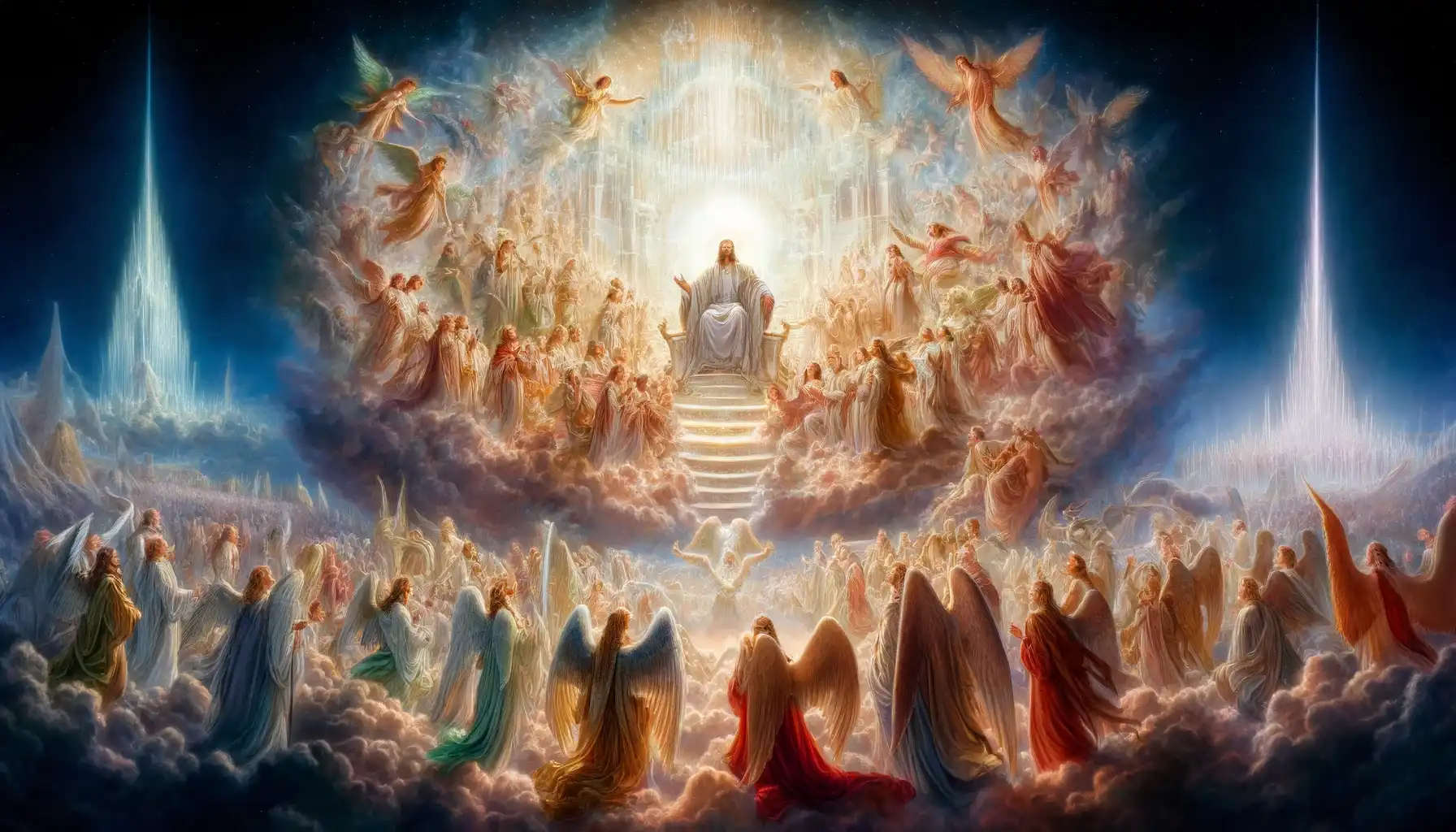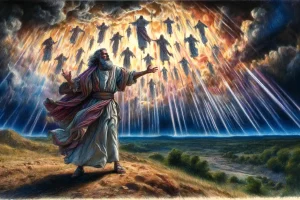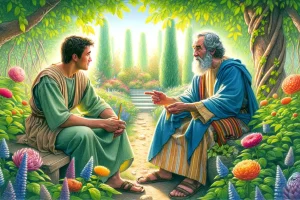
The Book of Revelation
The Book of Revelation is a profound and enigmatic work of apocalyptic literature that unveils the future climax of human history and the ultimate victory of God and His Kingdom. Addressed to seven churches in Asia Minor but intended for a broader audience of believers, Revelation reveals vivid and symbolic visions of cosmic conflict, divine judgment, and the glorious consummation of God’s redemptive plan.
Written by the Apostle John during a time of persecution, Revelation offers hope and encouragement to persecuted Christians, reminding them of the sovereignty of God and the promise of ultimate triumph over evil. Through its intricate imagery and theological depth, Revelation invites readers to contemplate the cosmic battle between good and evil, the enduring faithfulness of God, and the assurance of the believer’s ultimate victory and eternal fellowship with God in the new heavens and new earth.
The Book of Revelation, also known as the Apocalypse of John, is the final book of the New Testament. Here’s a comprehensive analysis:
Authorship and Date:
- Traditionally attributed to the Apostle John, though authorship is debated among scholars.
- Written around 95-96 AD, during the reign of the Roman Emperor Domitian, while John was in exile on the island of Patmos.
Audience and Purpose:
- Addressed to seven churches in Asia Minor (modern-day Turkey) but intended for a wider audience of believers.
- The primary purpose is to reveal the unveiling of Jesus Christ and His victory over evil, to encourage persecuted Christians to remain faithful, and to provide hope in the midst of tribulation.
Themes:
- Christ’s Victory: Revelation reveals the victorious reign of Jesus Christ as the Lamb who was slain, the conquering Lion of Judah, and the King of kings and Lord of lords.
- Eschatology: Revelation contains detailed visions of the end times, including the Great Tribulation, the Second Coming of Christ, the final judgment, and the establishment of the new heavens and new earth.
- Persecution and Endurance: Revelation addresses the persecution faced by early Christians and encourages believers to remain faithful to Christ, even unto death, knowing that their ultimate reward is secure.
- Spiritual Warfare: Revelation depicts the ongoing spiritual battle between God and Satan, good and evil, and emphasizes the victory of Christ over the forces of darkness.
- The New Jerusalem: Revelation describes the glorious city of the New Jerusalem, symbolizing the ultimate fulfillment of God’s promises and the eternal dwelling place of the redeemed.
Structure:
- Introduction (1:1-8): John introduces the book and addresses the seven churches in Asia Minor.
- Letters to the Seven Churches (1:9-3:22): Jesus dictates letters to seven churches, addressing their strengths, weaknesses, and exhortations for repentance and faithfulness.
- Visions of Heaven and Earth (4:1-11:19): John is caught up to heaven and witnesses visions of God’s throne, the Lamb, the scroll, the seals, the trumpets, and the bowls of wrath.
- Victory of Christ (12:1-20:15): John sees visions of the woman and the dragon, the two beasts, the battle of Armageddon, the millennial reign of Christ, and the final judgment.
- The New Heaven and New Earth (21:1-22:21): John sees visions of the new heaven, the new earth, the New Jerusalem, and the river of the water of life.
Key Verses:
- Revelation 1:8: “I am the Alpha and the Omega,” says the Lord God, “who is and who was and who is to come, the Almighty.”
- Revelation 21:4: “He will wipe away every tear from their eyes, and death shall be no more, neither shall there be mourning, nor crying, nor pain anymore, for the former things have passed away.”
- Revelation 22:20: “He who testifies to these things says, ‘Surely I am coming soon.’ Amen. Come, Lord Jesus!”
Significance:
- Revelation is a unique book that combines apocalyptic, prophetic, and symbolic imagery to convey spiritual truths about the nature of God, the reality of spiritual warfare, and the ultimate triumph of Christ.
- The book provides hope and encouragement to believers facing persecution and tribulation, reminding them of the sovereignty of God and the promise of eternal life.
- While some aspects of Revelation remain mysterious and open to interpretation, its central message of Christ’s victory over evil and the ultimate restoration of all things continues to inspire and comfort believers throughout the ages.
Tag:Alpha and Omega, Antichrist, Apocalypse, Apocalypse of John, Armageddon, Beast, Christianity, end times, eschatology, Four Horsemen, Heaven, Hell, John, judgment, Mark of the Beast, Millennium, New Jerusalem, New Testament, prophecy, Revelation, Second Coming, Seven Bowls, Seven Seals, Seven Trumpets, Symbolism, Tribulation, Vision



